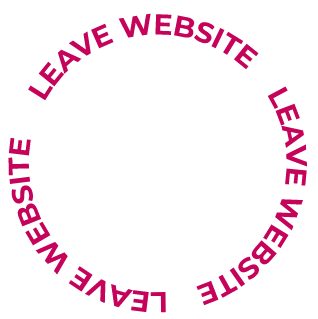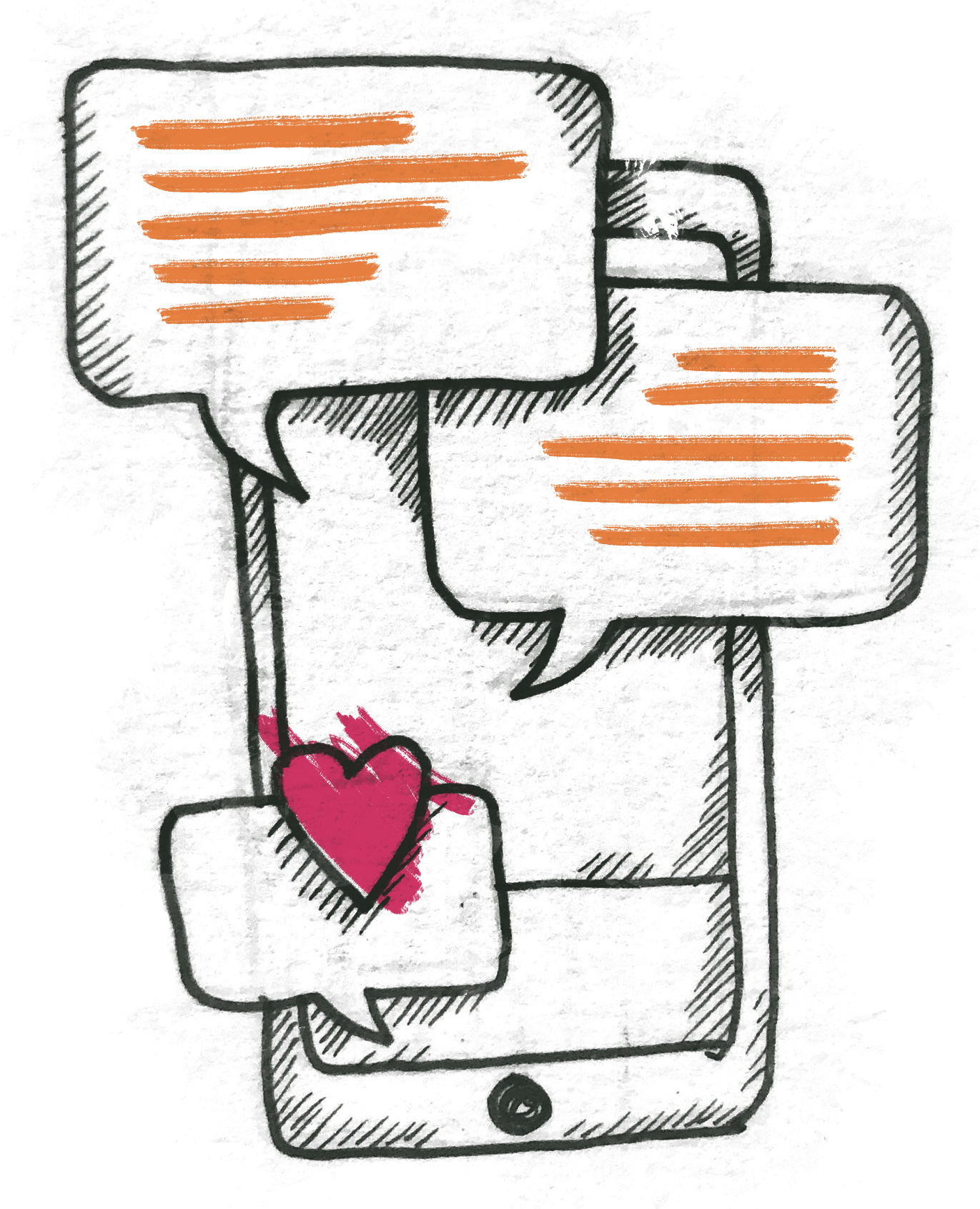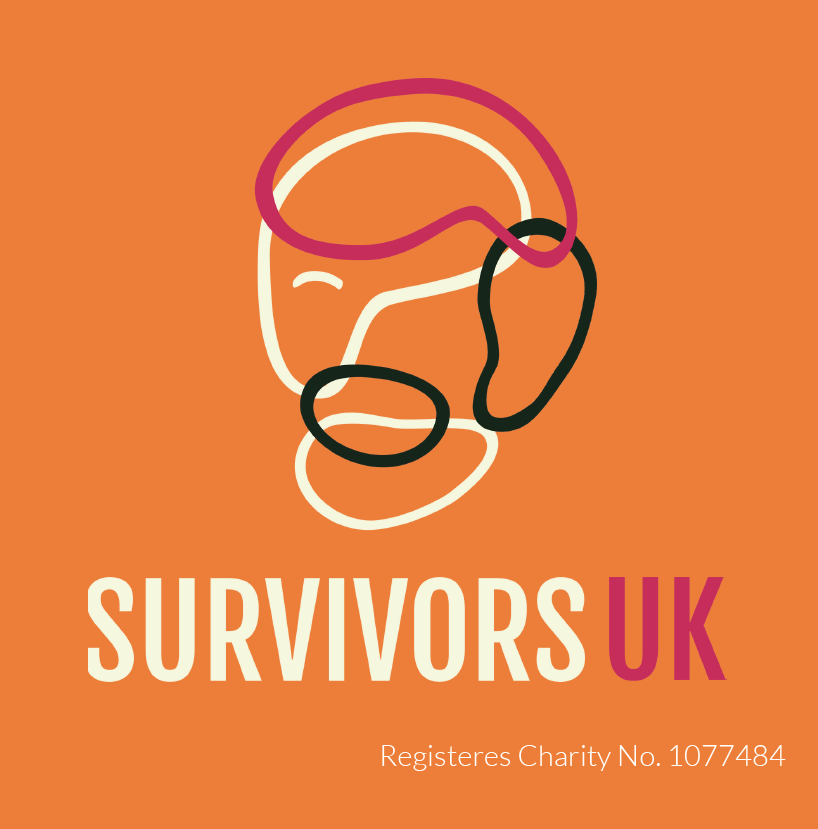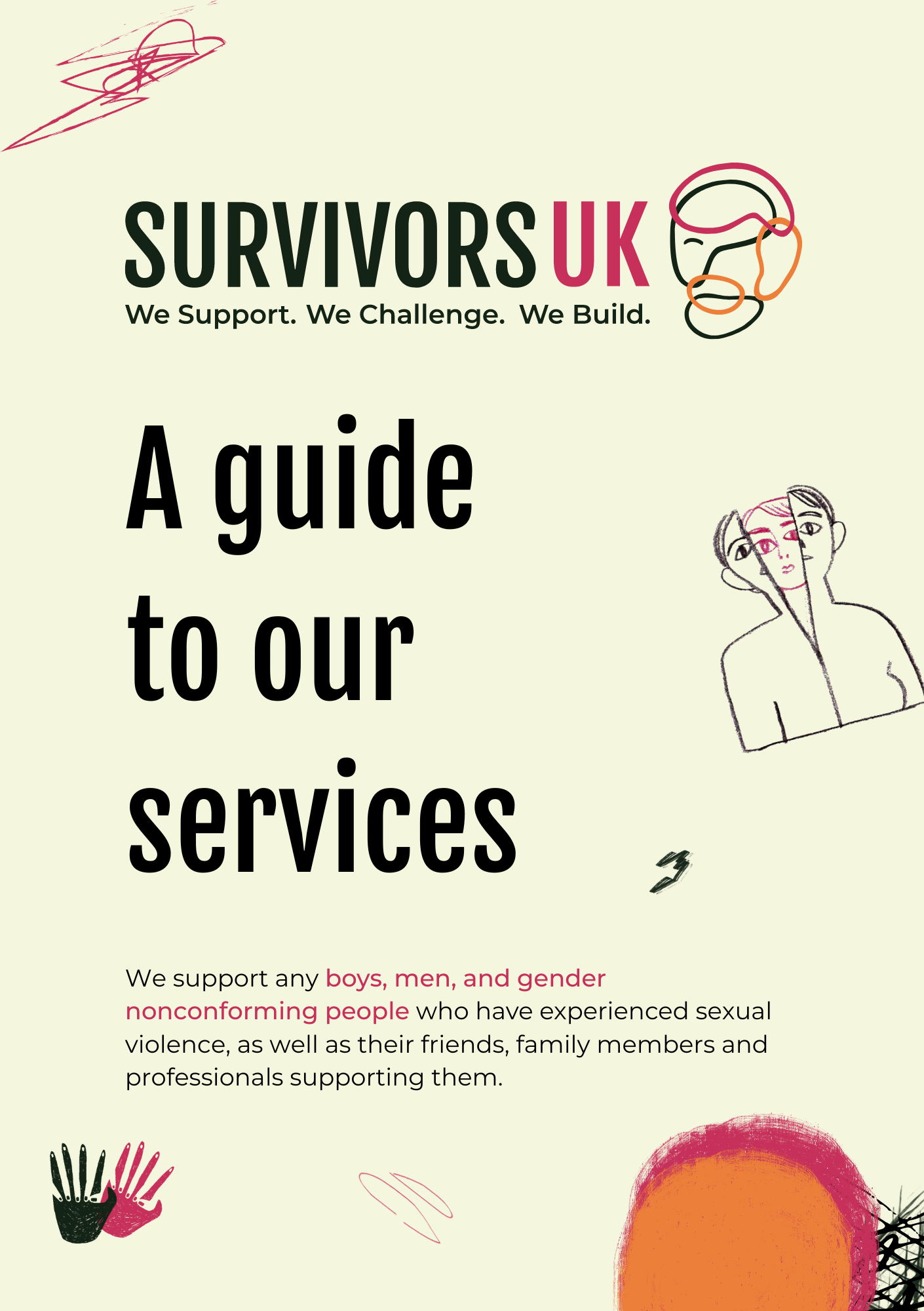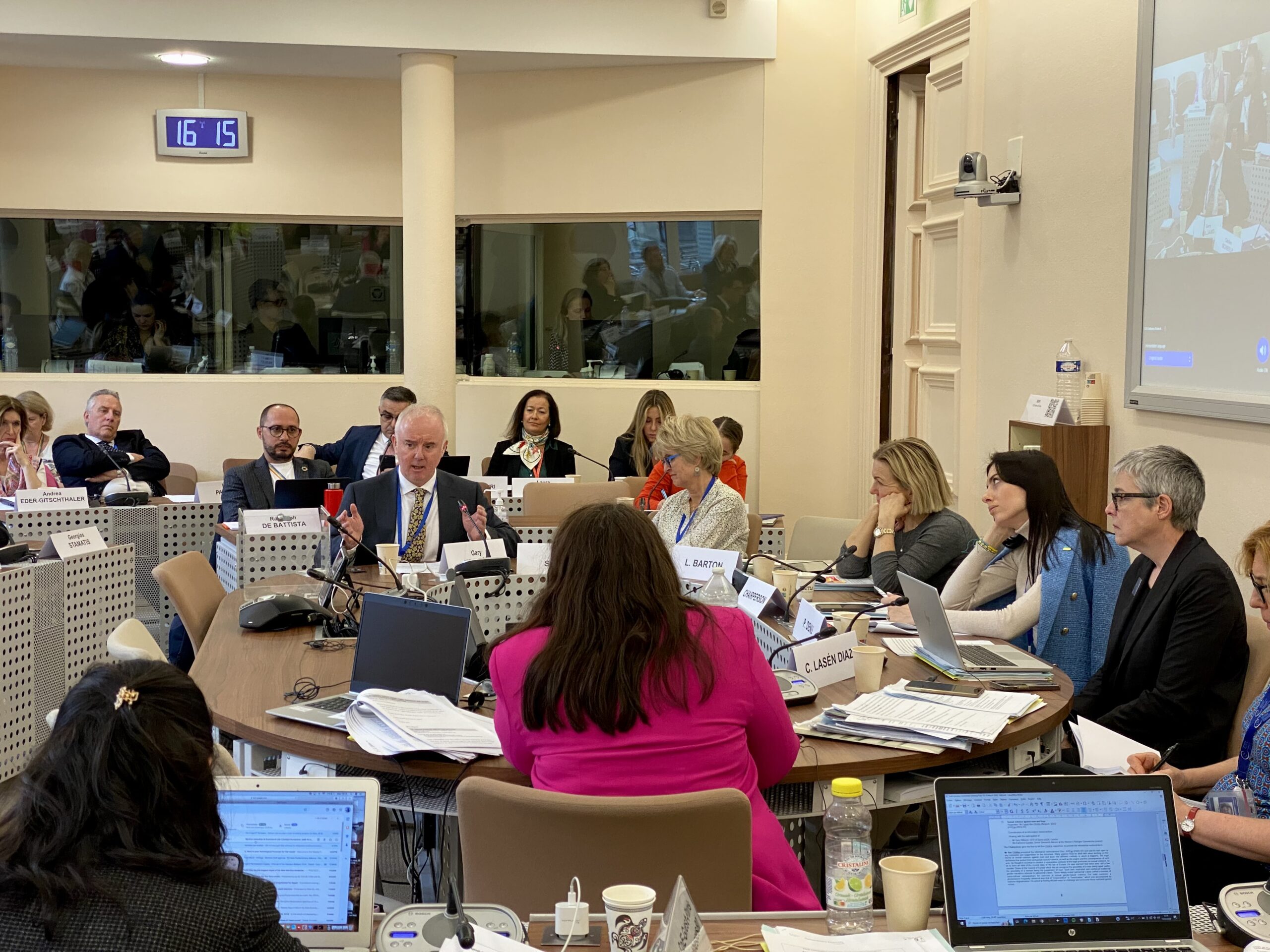
SurvivorsUK CEO addresses the Council of Europe on properly supporting male survivors of abuse – now
On Monday 18th March 2025, SurvivorsUK CEO Gary Williams joined the Parliamentary Assembly of the Council of Europe in Paris to address the Committee on Equality and Non-Discrimination on how sexual violence affects male survivors. When an estimated 12,000 men are raped in the UK each year yet only 19% of male survivors report to the police, there is a clear gap in awareness and services for supporting male survivors of sexual violence. The picture is similar across Europe. Simply, this isn’t good enough – and it’s not the way that things need to be.
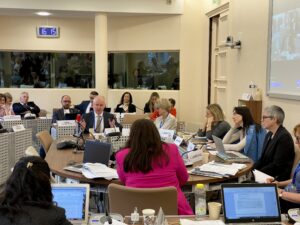
Our CEO stressed to the committee that change is possible, but we need to call upon our respective governments to take the needs of victims of all genders seriously through strategy, education and funding. We owe it to the survivors in our lives – whether we know they have experienced abuse or not.
Read the full speech below:
“Thank you for your invitation to this important meeting. It is my absolute pleasure to join you in Paris in the year it hosts the Olympic Games. As you know, at the heart of the Games is the beautiful Stade de France.
Picture the scene: A capacity crowd at the stadium are watching the Men’s 4 x 100 metre relay race. 40,000 women and 40,000 men watching their 32 men run their absolute personal bests in this magnificent spectacle of sport. Of the women in the crowd, we can expect that 10,000 will have experienced sexual assault. That’s one in four women. Meanwhile over 6,600 of the men in the audience are statistically likely to have also experienced childhood sexual abuse or sexual assault as an adult. One in six. Meanwhile, what of the runners on the track? Of these 32 men, we might reasonably expect 5 or six to have experienced sexual violence. Or perhaps not. We know that for many survivors of sexual violence, their trauma acts as a barrier in their lives, standing in the way of them achieving their childhood dreams. That boy who only ever wanted to run at the Olympics? He gave up his dream when he was raped by his coach.
This is why SurvivorsUK exists. To provide practical and emotional support to men, boys and non-binary people who have experienced sexual violence so they can move beyond the trauma. And we’ve been doing this for 38 years. Men and boys who have survived sexual violence are significantly less likely to access services that they perceive as being for women – not least as they don’t expect to be welcomed into organisations that, quite correctly, provide safe spaces for women.
The mere existence of sexual violence against men remains such an overarching taboo subject in society that men who are affected feel unseen and uncatered for by ‘traditional’ services. Our services include counselling, therapeutic group work, a national helpline and also a team of Independent Sexual Violence Advisors whose job it is to support survivors through the UK justice system, from the first time they contact the police all the way through to hopefully seeing their attacked stand trial and beyond.
We also work to raise awareness of the extent of sexual violence against male survivors, to encourage them to seek the help and support they need.
It’s clear that there remains a significant gap in public awareness and support for male survivors of sexual abuse.
Discussion about male rape remains taboo. In the UK, for example, sexual violence against men and boys is often little more than a footnote in governmental strategies to address violence against women and girls. If we cannot even use the words ‘Men who have been raped’, how are we even to begin talking about the issue? Let alone begin to improve the professional practice of those who work with them, such as the police, health and social care professionals. We must continue to address this issue and ensure that all survivors receive the recognition and therapeutic support they need to heal.
Although some of the impacts of sexual abuse are experienced in a similar way by men and women alike, everyone faces challenges specific to their gender. For men, some of these arise from the pervasive societal myth that they don’t experience abuse. This compounds the risk of not being believed, or being blamed for bringing the abuse upon themselves…. a risk that every survivor faces. The problem is further compounded by the relative lack of services for men and boys. Left feeling unseen by the media, civil society, their own communities, and often their own loved ones, they may struggle – many of the men SurvivorsUK supports are dangerously isolated.
The responses to this isolation of many of the men we work with fall into one of two categories:
- They may internalise it into feelings of shame. Or
- They may externalise it into feelings of anger and hostility towards those they hold responsible for their suffering. This may be their abusers or those who occupy a similar social position, or it may be those who have minimised or disbelieved their suffering, blamed them, or denied them justice.
Further specific challenges for men arise because of cultural norms surrounding male identities and masculinities. In particular:
The pervasive myth that abuse doesn’t happen to men frequently leads to feelings of emasculation after abuse – especially, but not only, if the abuse were perpetrated by a woman or women.
The idea that “men don’t cry” or indeed express any tender feelings can lead to bottling up pain that, in the absence of a healthy outlet, may lead to severe mental ill-health, including psychosis, self-harm and potentially suicide.
Research shows that men who have experienced sexual abuse are at a heightened risk challenges. In fact, studies indicate that men who were sexually abused as children were up to ten times more likely to have suicidal tendencies; many of these men had not been clinically diagnosed as depressed.
Men are particularly vulnerable because they don’t like to talk to others about their problems. It’s difficult for anyone to come to terms with traumatic experiences such as childhood sexual abuse, but for men the stigma can be worse because they don’t tend to confide in their friends as much.
The idea that men are inherently aggressive, in combination with the myth that survivors are more likely to harm others, can lead to unfounded but nonetheless deep and disabling fears of doing so.
This combination – emasculation, and the pressure to perform toxic masculinity to compensate for it ….aggression – towards those responsible for their suffering or even those who don’t recognise their suffering, and the belief that one might have themselves been turned into a perpetrator – we call this the Vampire Myth – can be deeply harmful both for the male survivor and for the community they live and work within.
The abuse that these men have suffered as children often sees them attempting to cope by suppressing the experience through substance abuse, alcohol abuse and obsessive behaviour, with many ending up in the criminal justice system
If these factors go unaddressed, they can lead to problems such as an inability to hold down a job or relationship, or feeling they that they don’t contribute to society, or in some cases quite literally questioning whether they can carry on living.
This is not how things need to be. Our 38 years of working with men, boys and non-binary people tells us that, when given the right support, victims of assault can not only survive, but can thrive and live full and happy lives.
I stand in front of you as a resilient example of that.
Group work or counselling for survivors of sexual abuse can yield profoundly positive outcomes. By providing a safe and supportive space, survivors can share their experiences, emotions, and challenges with others who understand and empathise with them. Through guided discussions, therapeutic exercises, and the presence of a trained therapist, survivors can begin to process their trauma, address feelings of shame and guilt, and learn coping mechanisms to manage their symptoms. The group setting offers a sense of belonging and validation, fostering a supportive community where survivors can draw strength from one another. Over time, survivors experience improved mental well-being, increased self-awareness, and enhanced coping skills, ultimately empowering them to reclaim their sense of agency and embark on a journey of healing and recovery.
The Council of Europe is an international community based on justice. But are we brave enough to support the men in our lives who – whether we know it or not – are victims of sexual violence? They could be our brothers, our sons, our work colleagues, our husbands, our fathers…. our Olympic heroes. We need to start talking about how sexual violence affects men as well as women, and call for our respective governments to take the needs of survivors of all genders seriously.”

